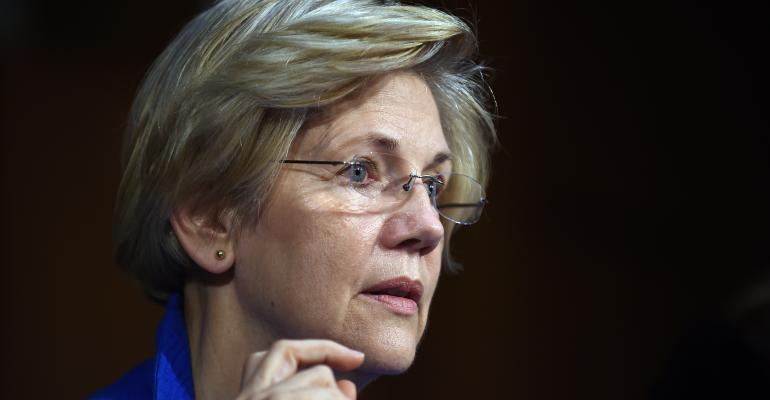Senator Elizabeth Warren, a Massachusetts Democrat who advocates for strong financial regulation, asked U.S. securities regulators on Thursday to investigate comments made by major insurance companies about a forthcoming federal rule on retirement advice.
Last month, Warren criticized Lincoln National, Jackson National Life Insurance Company, Prudential Financial and Transamerica, a unit of Aegon NV, for publicly stating that the rule requiring retirement advisers to put their clients' interests ahead of their own would hurt business while privately telling investors it would not create a major hurdle.
On Thursday, she went one step further and requested the Securities and Exchange Commission to formally look into whether the statements were contradictory and ran afoul of securities laws.
"Both sets of industry claims - that the proposed rule will harm them and their business model, and that the proposed rule will not harm them and their business model - cannot possibly be true. And if one these public statements is materially false, it would appear to violate long-standing interpretations of our securities laws," she wrote to SEC Chair Mary Jo White.
The White House will soon publicly release the latest version of the rule, drafted by the Labor Department.
The 2010 Dodd-Frank Wall Street Reform law called for holding brokers who give retirement advice to a strong fiduciary standard, meaning they must act in their clients' best interest, as a way to protect retirees from buying unnecessary products that line brokers' pockets.
The Labor Department had to withdraw its initial version of the rule in 2011 after complaints from members of both political parties and the financial services industry.
Warren says that financial and insurance companies have warned in public that the proposed rule could drive up costs and stop them from offering retirement services such as annuities to middle- and lower-income people.
But in earnings calls they have reassured investors that they will come up with new products or approaches that will minimize threats to their businesses.
Responding to Warren's critique last month, most of the insurers said their public warnings did not contradict reassurances to investors that they could withstand regulatory changes. They said their companies could navigate potential disruptions but they were still concerned about the consequences for consumers seeking retirement advice.






